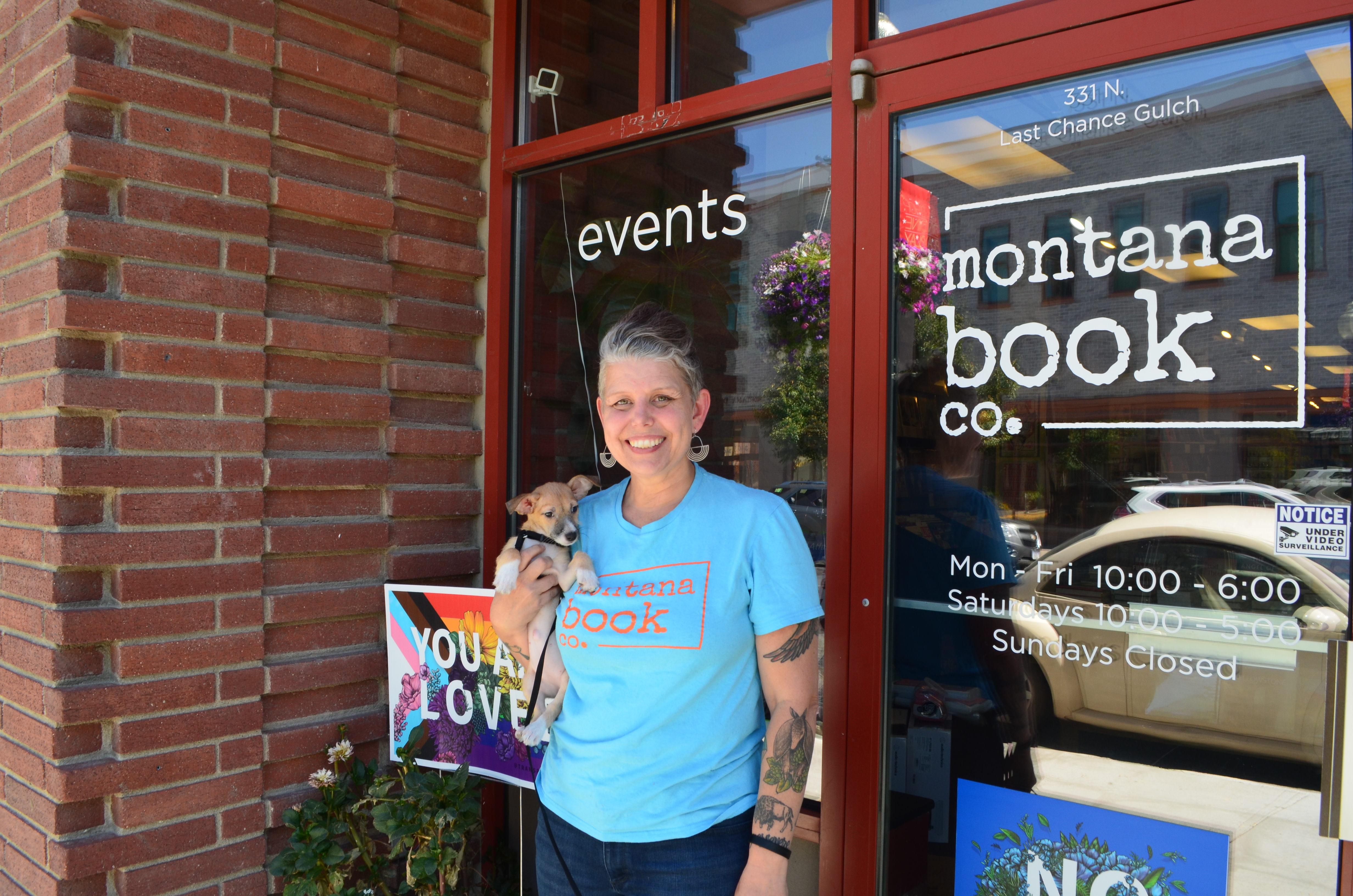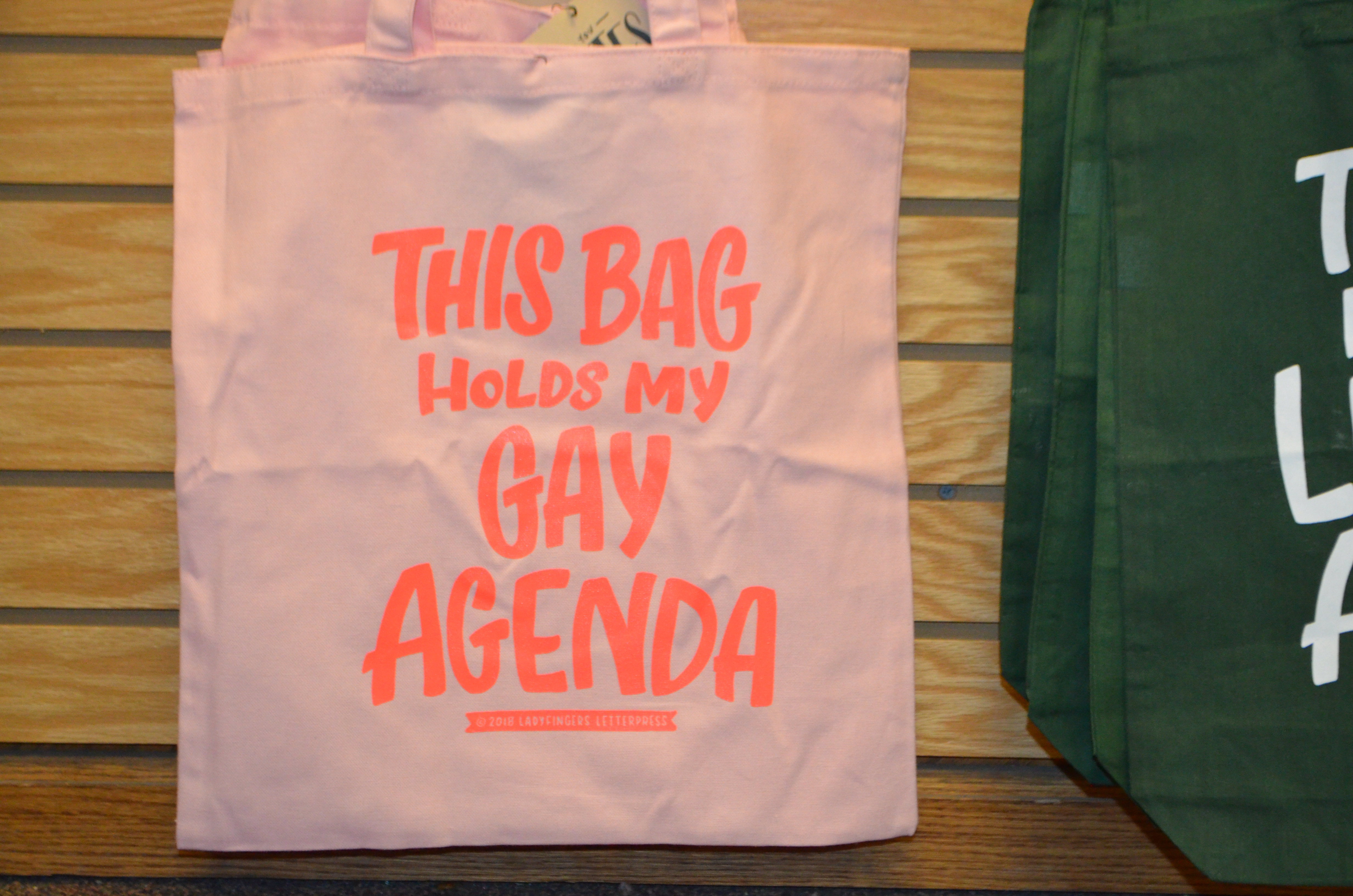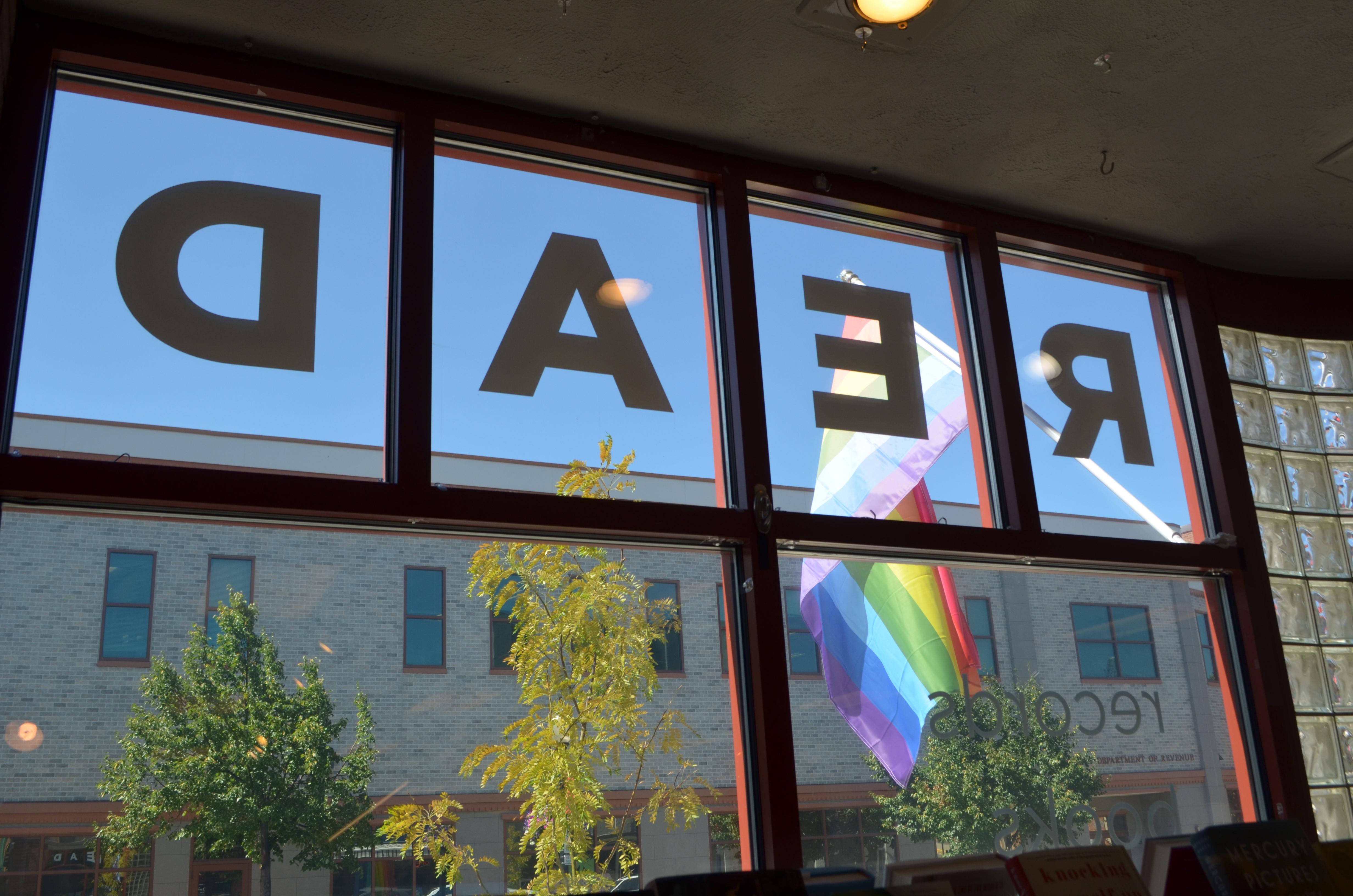
Montana Book Company has been a fixture in downtown Helena since the late 1970s.
When Chelsia Rice and her spouse Charlie Crawford, both former educators, bought Montana Book Company in 2018, they knew they wanted to bring a social justice element to what is now downtown Helena’s 45-year-old bookstore. They also knew they wanted to do it in a way that knitted the community together, especially at a moment that was seeing increasing division: no easy feat in the capital city of Montana.
Don’t assume you can define Montana, or any state
To an outsider, Montana is solidly a red state, but the reality is more complex. Montanans’ mentality generally lies more in the live and let live realm, but like everywhere else in the U.S. the past few years, divisions have grown. Not long after Rice and Crawford bought the bookstore, the murder of George Floyd occurred, and as tensions rose across the country, they decided that Montana Book Company would focus more on social justice.

Despite the divisions, the educator within Rice wanted the bookstore not only to be a place that stood for inclusion and social justice, but also a safe place for the community. One thing she didn’t want was for their LGBTQ-owned business to be the center of conflict. “People might assume we’re fishing for conflict [putting justice at the center of their business],” she told TriplePundit, “but we’re educators and interested in conversations with boundaries.”
Challenges to welcoming everyone in a community
That doesn’t mean they haven’t faced challenges—both on their doorstep and at the state house, which sits just a few blocks away from the store. Not long after they took ownership, Rice had an encounter with a customer that she still recalls with clarity. She was wearing a Black Lives Matter shirt under her cardigan when an older man in a camouflage cap came in the store. After collecting a stack of books to buy, he noticed the overt nature of the social justice stance of the store and put his books down, laying into Rice, saying she was liberal and biased.
Using her teacher training, Rice let him air his grievances and remained calm until he wore himself out. “I asked him, ‘listen, are you a vet?’” she recounted to 3p. When he answered that he was, she replied by telling him that her spouse was a vet in the 1990s (at the height of Don’t Ask, Don’t Tell). She explained her shirt was a message to honor the people who have died, not an attack. They continued to talk, and he began to tear up recounting his experiences. He came back later and bought the books he set aside, giving Rice a hug. “He left us a three-star review, but in it he said that the store was liberal but the owners were good people,” Rice said with a smile.

Unfortunately, a more recent incident led them to put up a sign prohibiting guns in their store, but by and large, Rice said the community has been loving and supportive of them. In response to anti-trans bills in the state legislature, Montana Book Company put out a call to raise funds for a billboard on the highway. In a short span of time, they had raised $10,000—enough to fund the sign through July 2023.
They have also had support from other local businesses, including one whose owners helped them develop a business plan, learn about payroll and generally gave them the confidence to become the success that they are.
Books, social justice and community
Community has been at the center of the store’s owners’ business model from the beginning. They found initial support through the Montana Human Rights Network, and continue to give back. “People come to us for conversation and comfort,” Rice said. “We are an activist bookstore, here to help people process what’s going on the world.” She and Crawford view their role as a hub of the community, with books and education at the center, which also means emphasizing the local aspect of their business. “Books are evergreen,” Rice told 3p. “There will always be a need for books. When someone says they can get something cheaper from [a national chain], I tell them when you buy a book here, you enable us to give someone in Helena a living wage and benefits.”

And that, in the end, is what anchors them. “This business is not just transactional, it’s building relationships,” Rice said. She recalled a time where she watched an eclipse on the Capitol ground and happened to sit on the grass next to one of Montana’s U.S. senators. “We talked about our families and just watched the sky.” For a business that wears its pride in the bold colors of the flag it flies outside, justice and community in Big Sky Country never seemed like a more natural fit.
Image credits via Kate Zerrenner


Kate is a writer and policy wonk, with a focus on water, clean energy, climate change and environmental security. She spent over a decade running energy-water nexus and energy efficiency programs at Environmental Defense Fund as well as time at the U.S. Departments of Energy and Defense, U.S. Government Accountability Office, and state and federal legislatures. She serves as an Advisory Board member of CleanTX, which aims to accelerate the growth of the clean tech industry in Texas.














